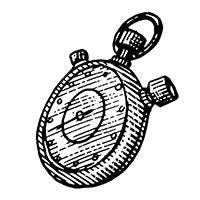Episodes
Published 02/23/15
Published 02/17/15
Published 02/14/15
Choosing a user name starting with a letter appearing earlier in the alphabet is just one scientifically vetted way to increase the odds of turning an online encounter into a first date. Christopher Intagliata reports
Published 02/14/15
Published 02/10/15
High-calorie and exceedingly pleasurable foods appear to change rat brain rewards circuitry, causing the rodents to continue to seek such fare. Erika Beras reports
Published 02/07/15
Published 02/02/15
Parkinson’s patients derived more benefits from a salt solution they were told was an expensive drug than from the same solution when it was described as being cheap medication. Karen Hopkin reports
Published 01/31/15
Published 01/26/15
Of studies presented at conferences, those that found a cognitive benefit to bilingualism were almost twice as likely to get published in journals as were studies finding no benefit. Karen Hopkin reports
Published 12/31/14
Implicit bias against another race lessened after volunteers experienced themselves via virtual reality as a member of that race. Karen Hopkin reports
Published 12/20/14
Levels of a protein fragment in the blood paralleled how long head injuries benched hockey players. Ingrid Wickelgren reports
Published 12/16/14
If you're in an up mood, you may walk more energetically. But a study finds that purposefully walking more energetically may improve your mood. Christie Nicholson reports
Published 12/08/14
Subjects who kept pace with a walking colleague estimated a potential enemy to be smaller and lighter than did other walkers who were not marching. Karen Hopkin reports
Published 11/09/14
Young adults who’d had highly controlling parents were less able to stress their own viewpoints to a friend or partner in confident and productive ways. Daisy Yuhas reports
Published 11/03/14
Absence from work due to illness increased dramatically for those who slept less than six hours or more than nine hours per night. Christie Nicholson reports
Published 09/29/14
The direction of your gaze when looking at someone offers an unconscious, automatic giveaway of whether your initial reaction is romance or sex. Christie Nicholson reports
Published 09/06/14
People who had to strike up conversations on a subway later reported feeling happier than those who didn’t. Christie Nicholson reports.
Published 08/30/14
Survey subjects rated life experiences as making them happier and as a better use of money than buying objects. But they actually spent their cash on material goods, whose value is more easily quantifiable. Erika Beras reports
Published 08/24/14
Children who experience neglect, abuse and/or poverty can have smaller amygdalas and hippocampuses, brain regions involved in emotion and memory, compared with kids raised in nurturing environments. Christie Nicholson reports
Published 08/16/14
Monkeys trained to play fixed video games made moves indicating that they expected certain patterns to occur. Erika Beras reports
Published 08/12/14
Published 07/29/14
Published 06/23/14
Published 06/02/14
Published 05/22/14


